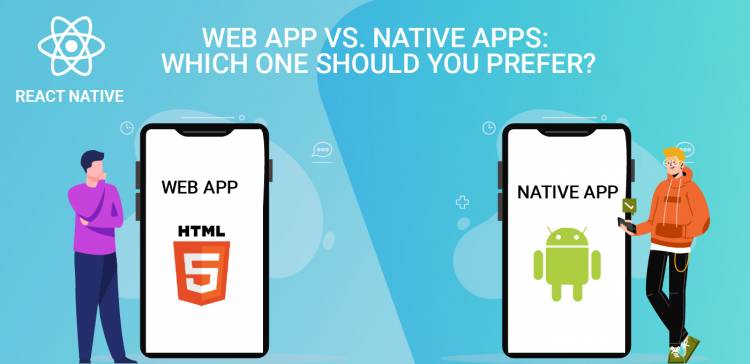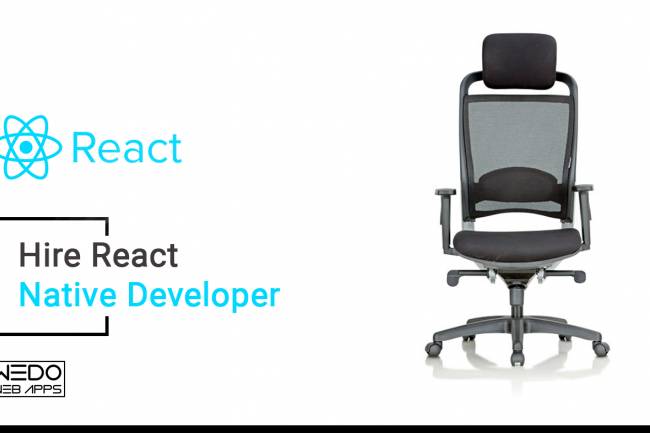
Web App vs. Native Apps: Which one should you prefer?
With an ever increasing demand for mobile devices, more and more businesses are driving towards mobile apps. On the one hand, mobile app development is a time-taking and costly affair. On the other hand, mobile application development is known to boost business revenue at an exponential rate.
As per Statista, mobile apps are forecasted to generate around 189 billion U.S. dollars in revenues across the world, via app stores and in-app advertising by 2020. It ensures the mobile app development is a profitable deal for your business. Before moving ahead with the app designing process, you must know which way of the app development can be more customer friendly. While moving forward, you will find yourself confused between the native apps and web apps.
Let us guide you with the differences and similarities between native apps and web apps:
Native mobile apps are mobile applications exclusively designed for dedicated mobile devices. To use these mobile apps, you need to download them via app stores or the app marketplaces.
Unlike native apps, web apps are internet-enabled apps that can be easily accessed from your web browser without downloading them.
Similarities & difference features between Native apps and web apps:
-
User interface: The UI of your mobile app must be designed so that it won’t trouble the end user. From UI’s perspective, both native apps and web apps mostly follow a similar look. However, the primary difference of the designing interface is always based on your idea of mobile app development. It varies if you design a user-centric app or application-centric version.
-
Device accessibility: You can download and use native mobile apps only when they are compatible with your mobile device. Likewise, the native mobile apps will have partial or complete accessibility upon distinct features of mobile devices.
On the other hand, web apps enable limited access to the features of the mobile device.
-
Updates: Native mobile apps are like distinct mobile software in your mobile device. So, you need to keep downloading updates of the mobile app to keep them up to date. Whereas, the web apps can be accessed only when you open them in your web browser. So, they keep themselves automatically updated for better customer experience.
-
Performance & Efficiency: When talking about the performance of the mobile apps, native apps are comparatively faster as they have the information locally stored in the device and links with the server only when needed. Whereas, web apps run directly because of the interaction with the web server. Henceforth, they are quite slow.
-
Storage: Native mobile apps occupies space in the mobile device to enable easy download and usage of the mobile app. If there isn’t enough memory available, the chances are that your customer won’t be able to use the native app. Whereas, you can use web apps on your mobile device anytime when you are connected to the internet. Even if a user runs out of the device memory, they can always use web apps. Here, web apps surely win a score over native apps.
-
Security: Native mobile apps can be downloaded only when you permit them to be downloaded from the app marketplace or app store. This ensures that most of the time, native mobile apps are more secure and safe to download. Whereas, web apps are more prone to risk as they run directly on the web browser and may have some phishing links embedded to them.
-
Cost of Development: Developing a native mobile app is a costly affair when compared with web app development. Also, the cost of development further increases with the multiple mobile operating systems that you are going to optimize your native app.
-
Revenue generation: Other than selling your services or products, you can generate revenue from your mobile apps with in-app advertising. However, app monetization can be tricky to deal with native apps as specific platforms lay restriction on it. However, web apps welcome the chances of revenue generation with the advertisements, charging membership fees, or so.
-
Payment system: Moving ahead with the thought of revenue generation via your mobile apps, the payment system will work distinctly for native apps and web apps. When the app store or play store takes care of membership fees for native apps, you need to set up a distinct payment system for web apps.
We believe that the features, as mentioned earlier, have clarified the similarities and differences between native apps and web apps. It can better help you in deciding that native app or web app, which can be more profitable for you. You can also opt for both of them to boost your customer experience. If you have an idea and seeking for the mobile app development company to help you with same, feel free to reach us at sales@wedowebapps.com













